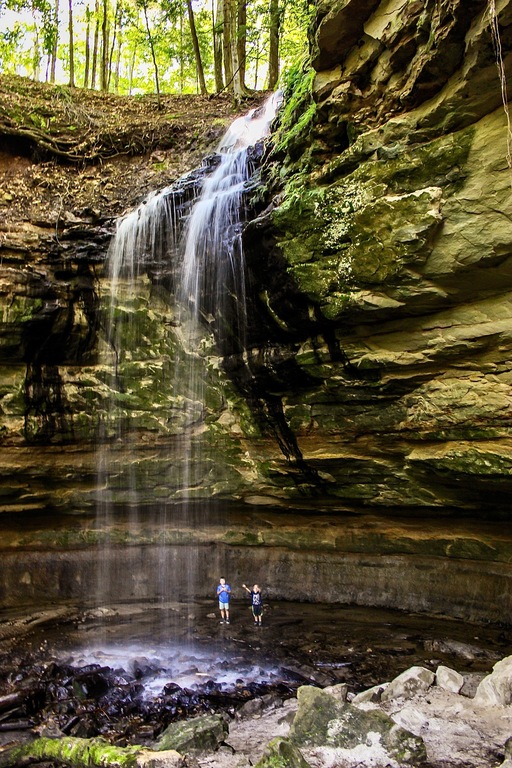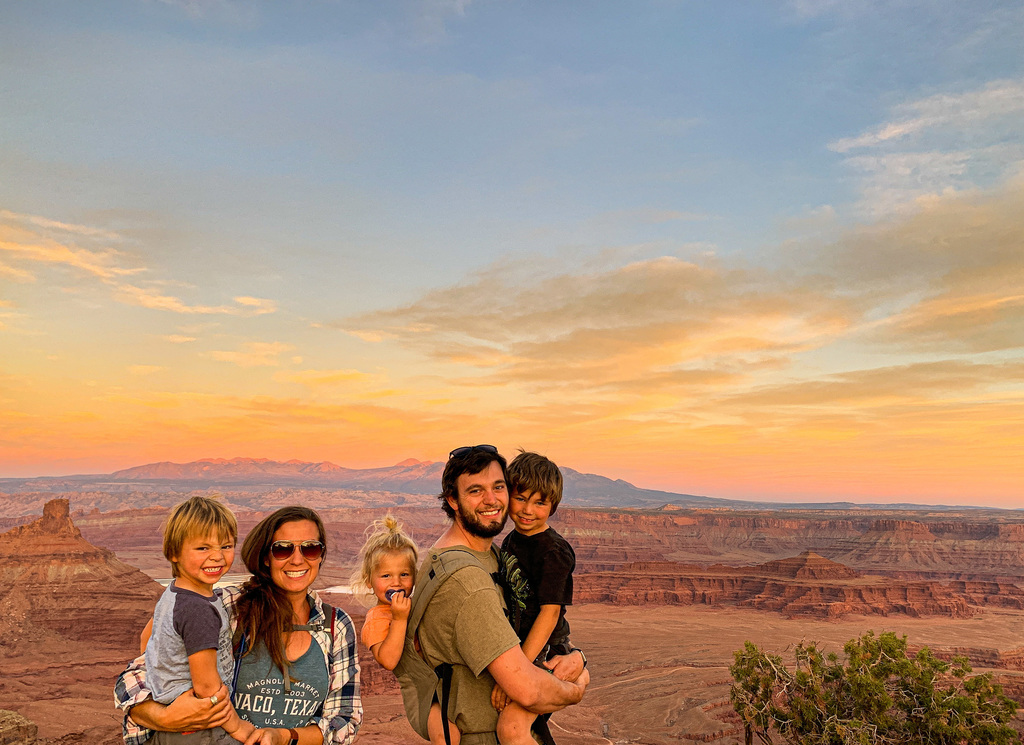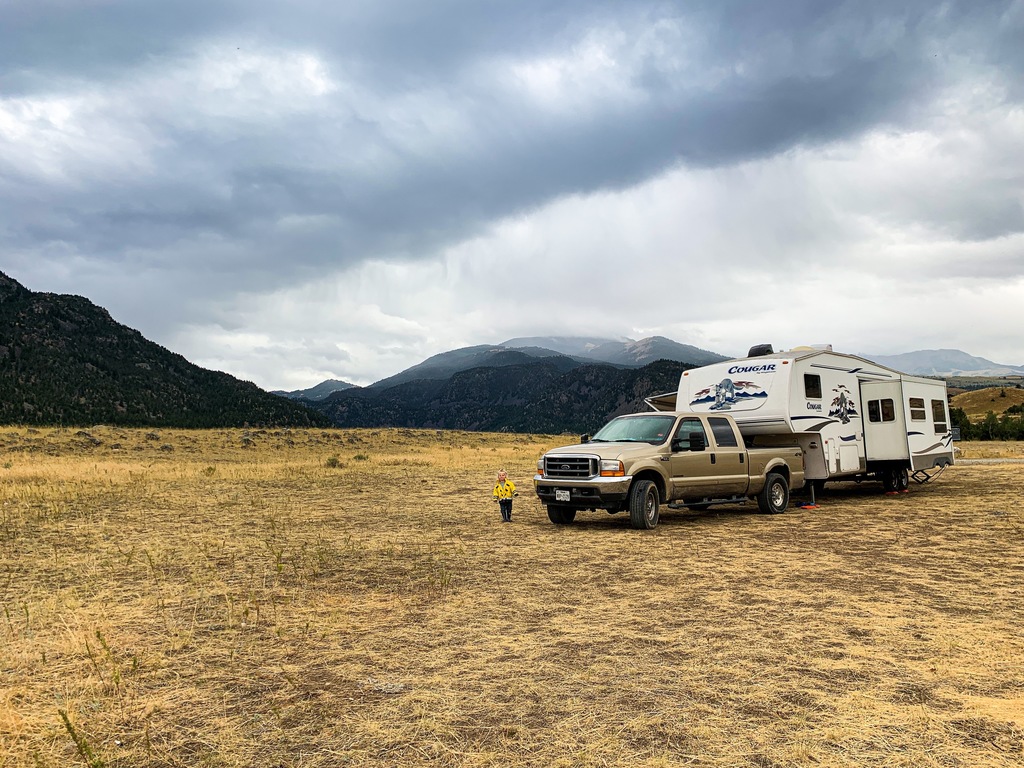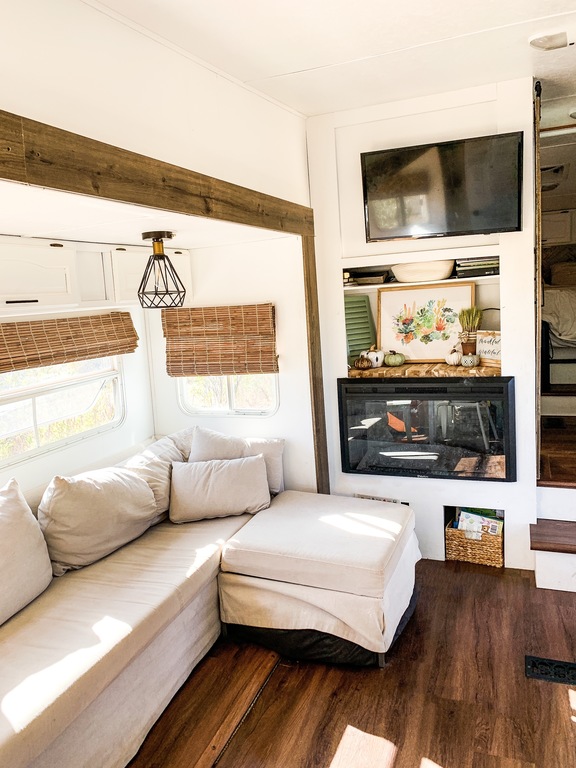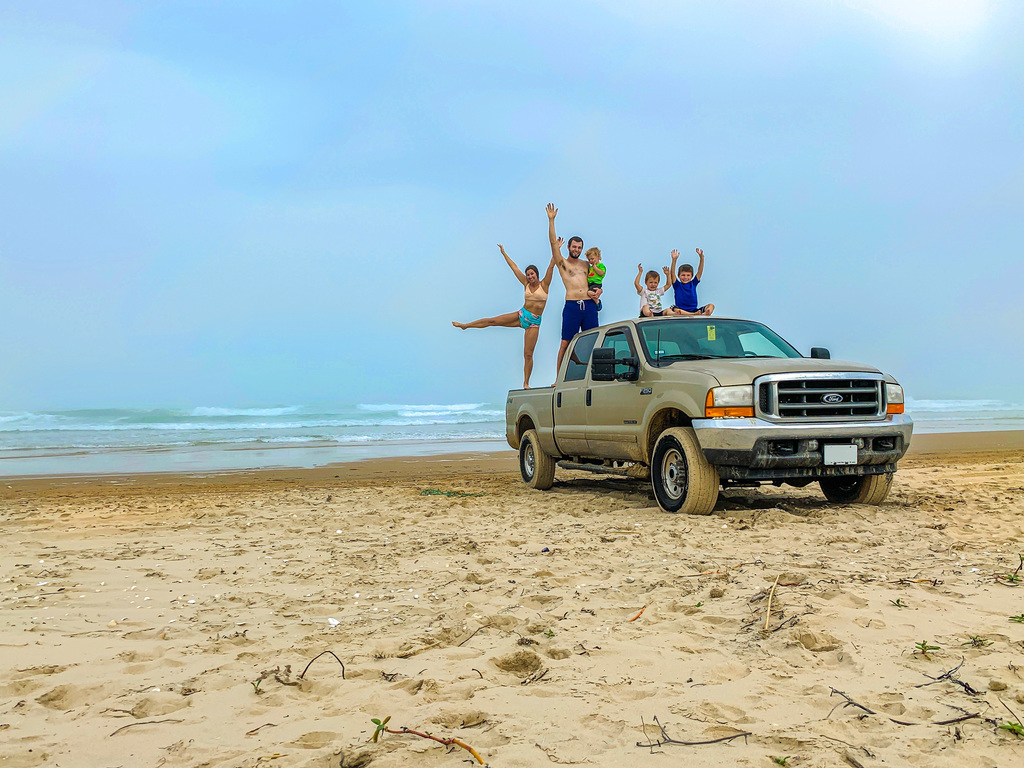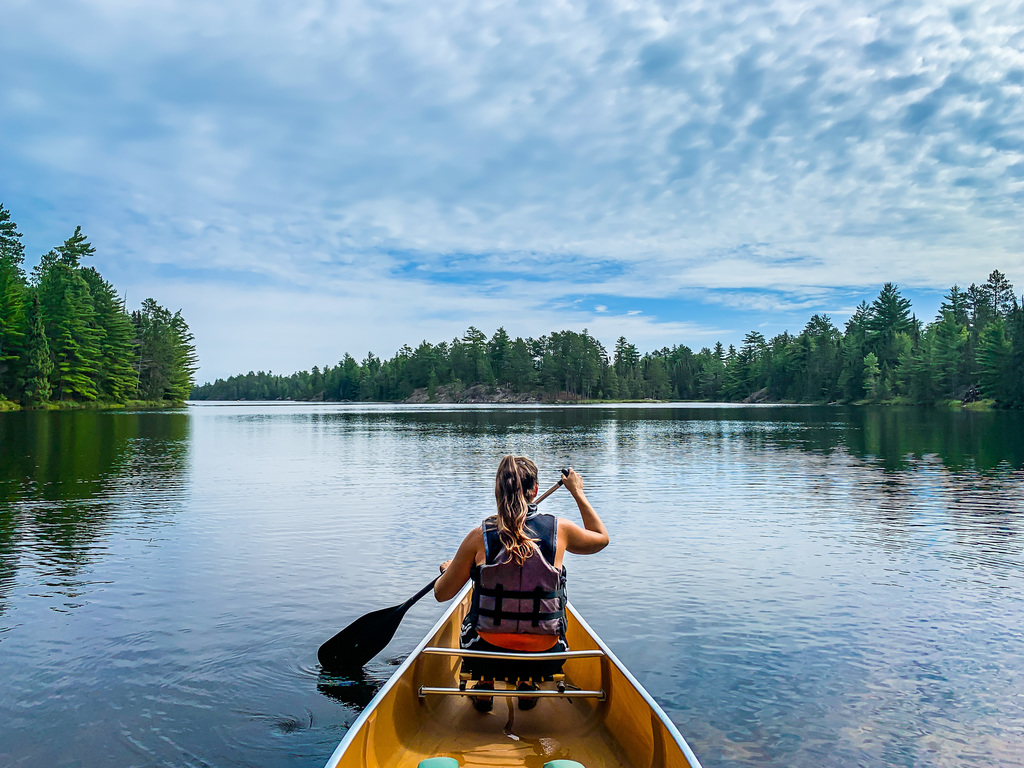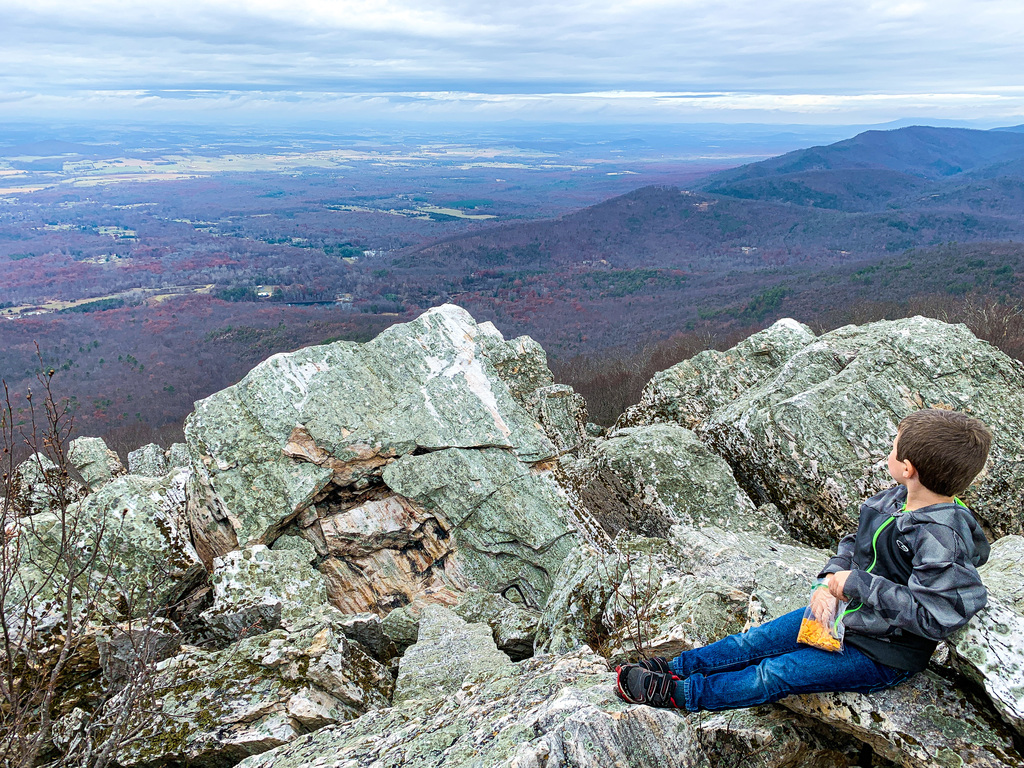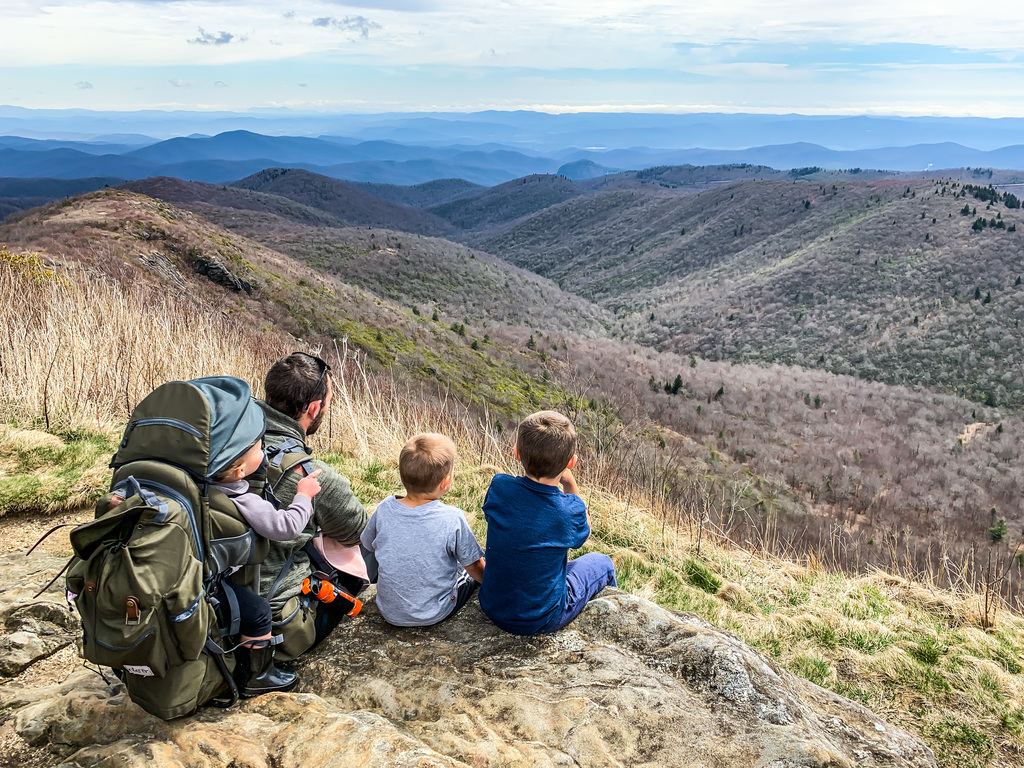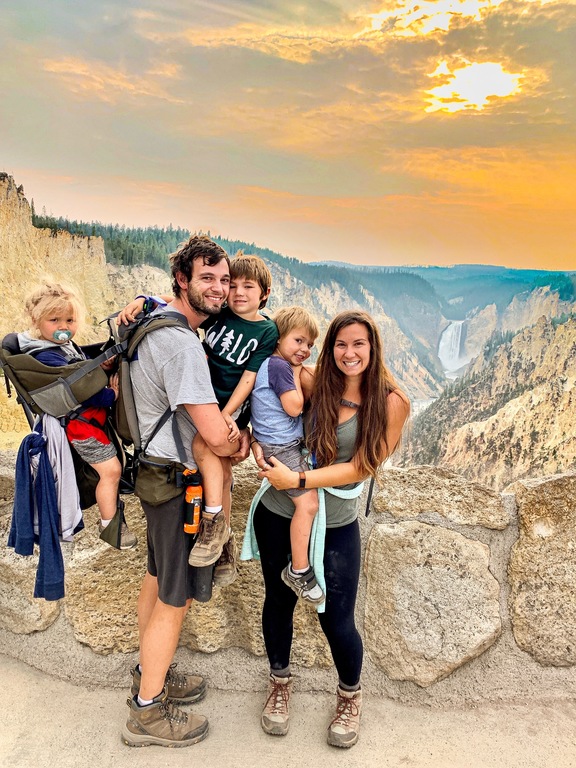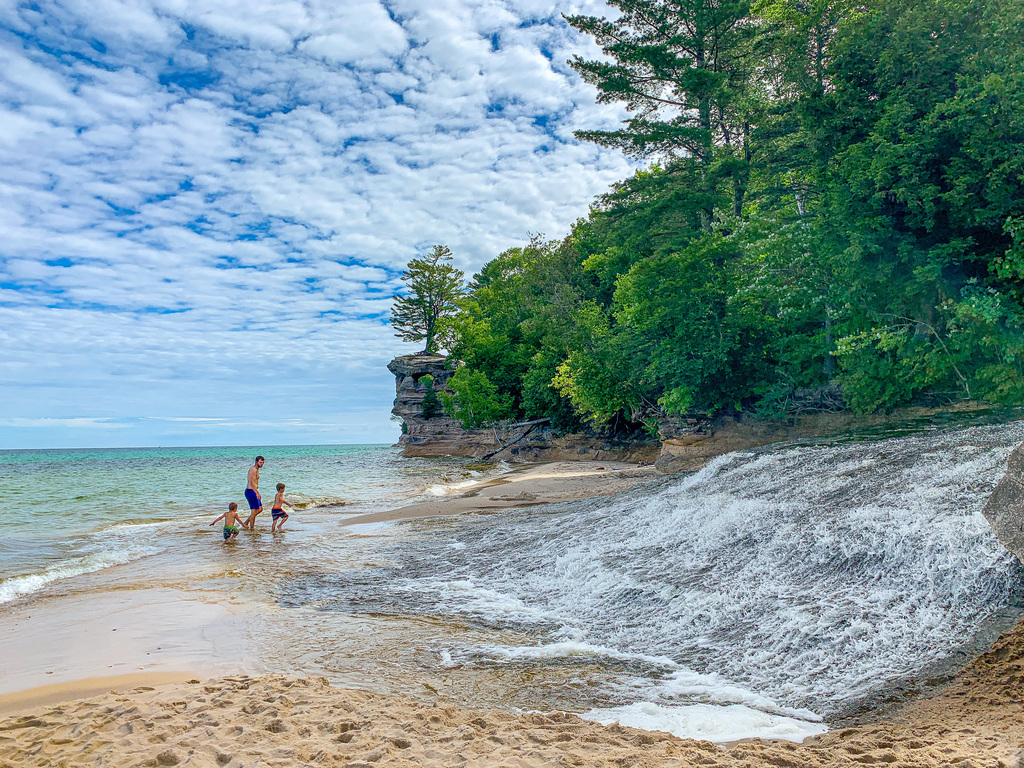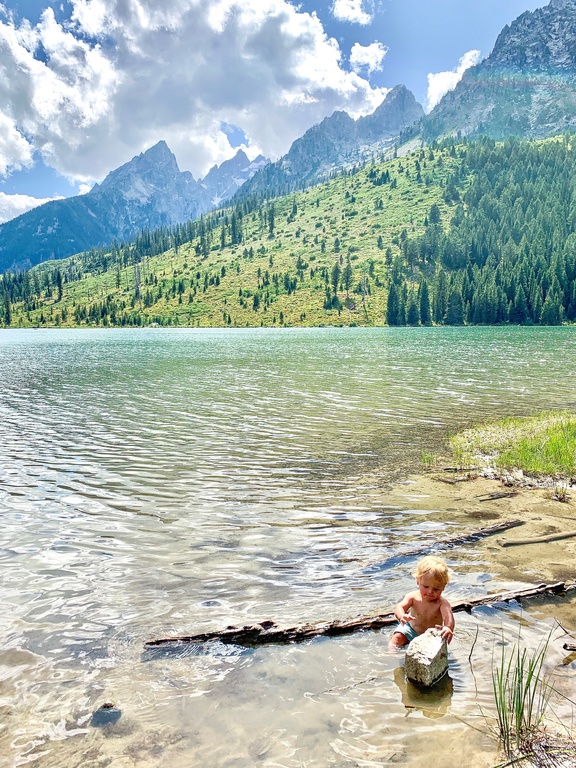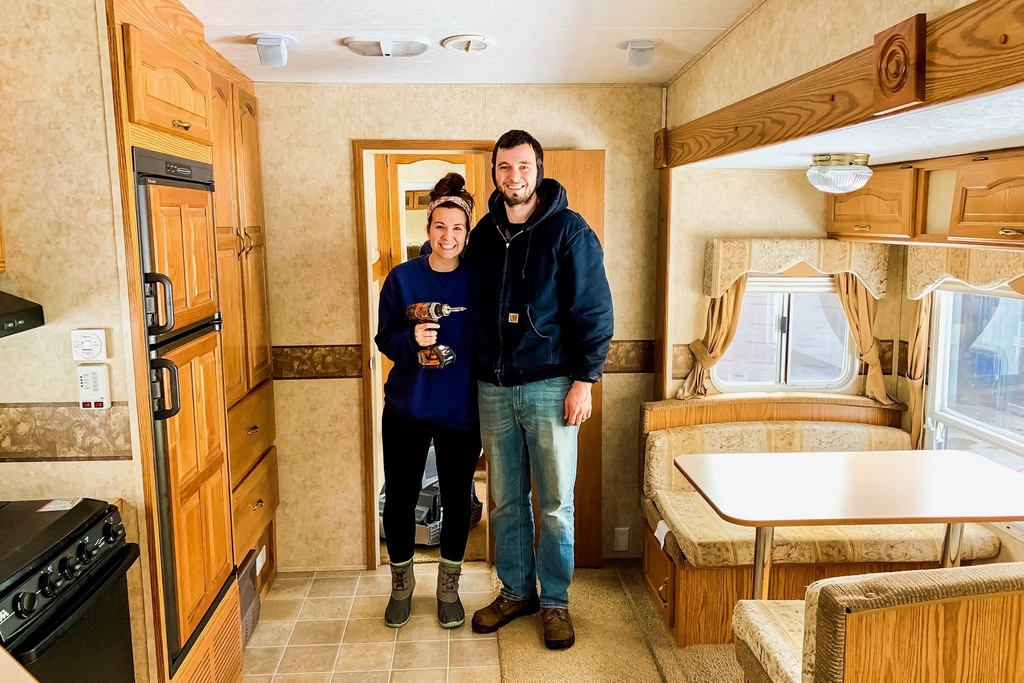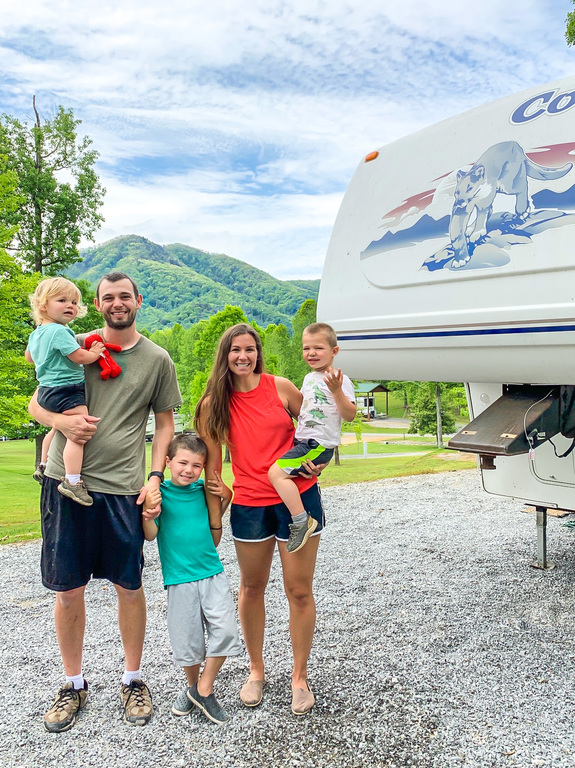The Bacons are a family of five – Wesley, Mallory, and their three little boys (aged almost 6 and 4, 2.5). They’ve been a full-time RV family since April 2019 and have visited 29 states since they began. For more on the Bacons and their adventures around the US, follow @baconsontheroad on Instagram.
The Inspiration For Being A Fulltime RV Family
We sold our house and most of our possessions to do this. We wanted the opportunity to explore more and spend more time as a family. We got sick of the daily grind. At this point, we have an open-ended timeline. We plan to continue this lifestyle until we are ready to settle down ... if and whenever that is.
The Benefits Of A Full-Time RV Lifestyle
Honestly, this lifestyle can be as expensive or cheap as you make it. You can spend tons of money on nice campgrounds or you can camp on the cheap at national forest campgrounds. We do as much boondocking (dry camping AKA no hookups) as possible on BLM or National Forest land when we are out west, which is plentiful and completely free. On the eastern side of the country as well as the Midwest, it is incredibly difficult to find free camping. So we always spend a lot more money whenever we are in those areas. There are also several camping memberships that can save you money. Basically, tons of ways to do this lifestyle. Everyone’s budget and preferred way to do this lifestyle are different.
Read more: This Family Of 5 Sold Everything A Year Ago And Have Been Fulltime RV-ing Around The USA Ever Since
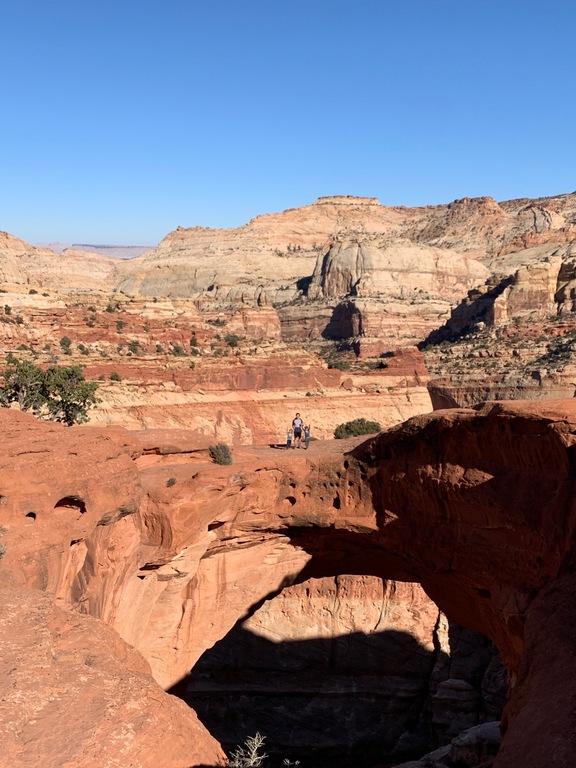
Our RV
We have a 2005 Keystone Cougar. We found it on Facebook Marketplace. If you’re looking to buy used, there are actually a lot on the Marketplace. For our family, we decided a fifth wheel was the best fit since they have more storage than travel trailers. They also sway less when you are towing. I would say a majority of the families we know that are full-time have fifth wheels, but of course, you’ll find plenty of families in travel trailers, motorhomes, etc. Every family’s needs are different.
We purchased a used RV because we wanted to pay cash and not have payments. I have no idea how much new ones cost but I think it’s a pretty wide range. We have heard not to buy new because they depreciate so quickly. Also, we know many families that bought new and have many more problems with their newer RVs than we have with our old ones.
We have been told (and I don’t know how true this is) that they “don’t make them like they used to” AKA the older ones are more sturdy and actually tend to have fewer problems overall. If you do buy used, you want to make sure you are checking for water damage because that can be a very big issue.
Read more: These Two Outdoor Lovers Traded In Their Sticks-And-Bricks House For A New Home On Wheels
Where We’ve Traveled To So Far
We've been all over the place! The only area we haven’t explored really is the west coast (we are hoping to head up that way this spring en route to Alaska, which we also haven’t explored yet). As mentioned before, everyone has different preferences with RVing. For us, we prefer mountains to beaches. So we would say we love being out west. As mentioned before, we also love to free camp. But others may have different opinions and preferences! We know some people that mostly camp along the coast at beaches, and some people that love the desert. It’s all a matter of opinion!
For our family, we love to hike and be outdoors, so we tend to spend a lot of time around national parks. But we also know families that aren’t really as into that.
We typically move locations every 7-14 days. We used to travel at a quicker pace, but with work, homeschooling, and just general “life,” we have slowed down this past year. We don’t get out and explore every day, because that is just not realistic. We need days at home (wherever that is) where we can just do “normal life.” So staying longer at places allows us to have more of that balance.
